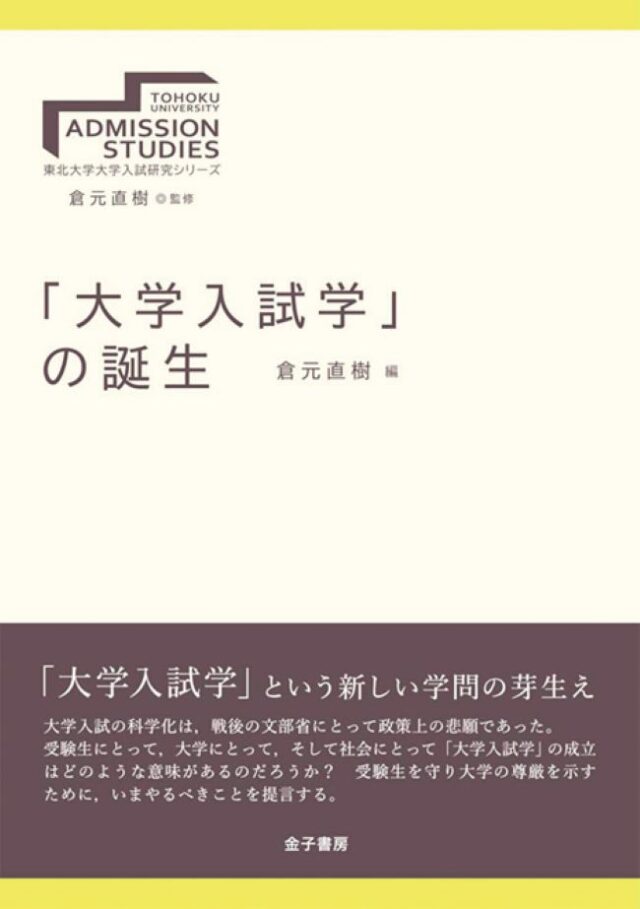
An academic society aiming to create a new research field called "University Entrance Examination Studies" has started moving toward establishment.
According to the association's establishment preparatory committee, its mission is to ``focus on the actual system of university entrance exams, while also visualizing related fields that have not been considered the subject of academic research.'' The aim is to clarify its academic value and improve the accountability of the system," and to "create a cycle of improvement regarding the current system based on evidence combined with academic knowledge."
Although university entrance examinations have been an important system that influences the lives of many young people since the Meiji era, it is difficult to say that this approach has been taken. The reason for naming it after the University Entrance Exam was that by using familiar words, they wanted to emphasize that the university does not end at pursuing academic value, but rather generates wisdom that will lead to a better future that is closely related to the state of Japanese society. .
The association also hopes to provide opportunities for academic study and career development that will contribute to the development of appropriate experts, with a view to assigning appropriate experts to specialized entrance examination departments, which have become active in universities in line with recent university entrance examination reforms. It is said that This is because this will be an important key to determining the future ups and downs of Japanese universities.
Furthermore, in the future, in line with the progress of globalization, we hope to improve connections with the systems of other countries that have developed independently.
Specific research themes include university admission selection systems (including history and those from other countries), university entrance examination methods, evaluation and measurement methods, university entrance examination policies, analysis of trends in university entrance exams, individual universities' student acquisition strategies, high schools and universities. Practical examples of collaboration, evaluation of entrance exam results, follow-up surveys related to entrance exams, social class and university admissions, career education and career guidance in high schools, etc., psychology of examinees, not only universities, but also junior colleges, graduate schools, high schools, and technical colleges. Examples include entrance exams.
A council of high school and university-related organizations will be established under the Society to serve as a place for mutual study and information exchange. This is because, until now, high schools and universities, which are stakeholders, have had few opportunities to recognize each other's actual situations and pool their knowledge toward better system design.
The High School Council is made up of high schools (including secondary schools) and organizations related to academic guidance that they organize (for example, the XXX Prefecture Academic Guidance Study Group). As a general rule, high schools or groups made up of multiple high schools are members. The University Council is made up of organizations involved in university entrance examinations. In both cases, individual members are not identified, and members are faculty members who belong to affiliated organizations.
In terms of direction, it is a clear departure from the ``National University Admission Selection Research Liaison Council (Admissions Association),'' which is sponsored by the University Admissions Center. In addition, in a few years after the establishment of the society, we aim to be designated as a ``Science Council of Japan Cooperating Academic Group,'' and plan to produce and publish publications (society journals, academic books, etc.).
The founding committee is calling on people interested in university entrance exams and people in related fields who support these aims to participate.
Details below
https://www.jaruas.jp/
